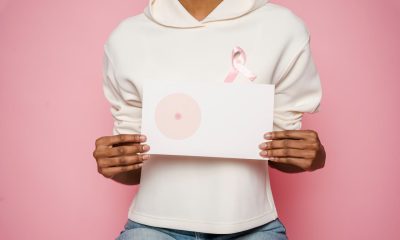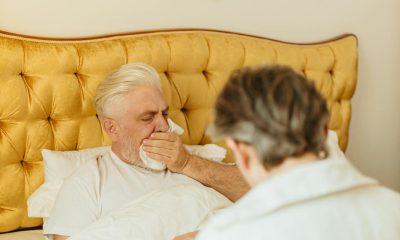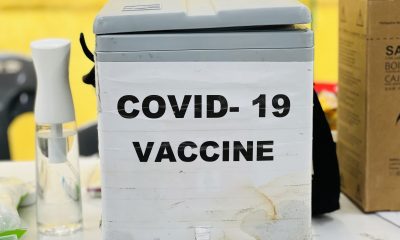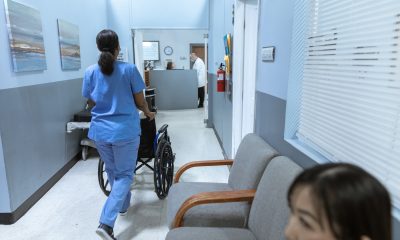Health
Liver transplant twins start school, beginning to thrive after surgery
Little Binh and Phuoc Wagner hopped onto a school van recently on their way to kindergarten class for the first time.
Their parents, Johanne and Michael, couldn’t get over the normalcy of the situation.
At this time last year, there were some thoughts, however fleeting, that the twin girls from Kingston, Ont., might never make it to school. They had just been placed on a transplant waiting list for new livers because of the effects of Alagille syndrome, a rare genetic disorder that affects vital organs.
Without new livers, the girls would die.
Michael was willing to donate part of his liver, but he couldn’t give to both girls. And he wasn’t sure if he’d be a match for either child. So the family went public, their story capturing the world’s hearts.
It turns out Michael was a match, and he let doctors choose which daughter would get his liver. The other would have to wait.
Doctors chose Phuoc and performed surgery in February, giving her part of Michael’s liver. Then they waited. Two months later they found another donor. That one was anonymous.
Life was chaotic. Now it’s calmer, as calm as it can be for a family with nine children.
“It was quite normal, almost anti-climactic, but this is the way it’s going to be and we don’t have to get stressed out as much anymore,” Michael Wagner says.
Life has completely changed for the Wagners and their nine children. The twins, who are developmentally delayed because of the damage their failing livers inflicted upon their bodies, are reaching new milestones daily. Their skin glows. It used to have a yellow tinge, as did their eyes.
The feeding tubes have been removed from their bellies. Their medications, which numbered in the dozens, have been drastically reduced. They can talk. They can dress themselves. And they’ve finally moved out of the cribs into their parents’ bedroom into “big-girl beds” in their own room.
The Wagners had to shuffle their house around to give the girls their own room, which included giving up their master bedroom so their four boys could move into the newly created “dorm room.”
And yet life is normal. Sure, there are the crises and ups and downs of life, but there isn’t a guillotine hanging over the necks of the girls.
“Tonight we’re dealing with a little girl who doesn’t want to drink her milk,” Michael Wagner says.
Just a few months ago, however, the situation was drastically different.
Binh struggled after receiving the transplant surgery. She ended up in intensive care for a week. Her diaphragm was partially paralyzed and she needed machines to breathe. She had a seizure.
And white blood cells from her new liver caused an immune reaction against her own red blood cells.
At that time, in Quebec City, Johanne’s father fell out a chair, broke his pelvis and hit his head. He was in bad shape. Johanne had to decide whether to leave her struggling daughter in Toronto or head to Quebec.
“It was tormenting, you don’t know where to put yourself,” she says.
“Then I thought what my dad would tell me if he was able to speak – he would have said: ‘You have to stay with your girl’ as he would have done with his girl.”
So she stayed. But then her mother had an angina attack when she heard about her husband’s bleak prospects and was taken to the same hospital. Johanne’s mother was able to be with her husband for the last 45 minutes of his life. He died from a cerebral hemorrhage.
After several transfusions, meantime, Binh got better.
That’s when the milestones began for the twins. They finally got to see the ocean in Nova Scotia and visited their other grandparents.
Nonetheless, the girls aren’t totally out of the woods. They’re vulnerable to disease and infection because of the immunosupression drugs they’ll be on for the rest of the lives thanks to the new livers in their bodies.
They have to watch what they eat. No processed lunch meats because of fears of listeriosis. No leafy greens because of e-coli fears.
With part of Michael’s liver in Phuoc, she may have picked up his allergy to shrimp.
And they are vulnerable to strokes if they hit their heads because of the Alagille syndrome.
Those concerns didn’t stop them from enjoying their first day on Thursday at the French school Ecole elementaire publique Madeleine de Roybon.
They laughed and played and ate their entire lunch.
It was just a normal day.






















